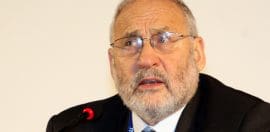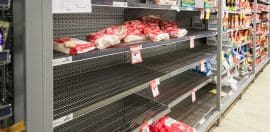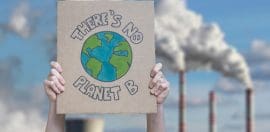Pandemic bonanza for billionaires

19 January 2022 at 4:15 pm
Inequality is contributing to the deaths of at least 21,000 people each day, or one person every four seconds, a new report finds.
While COVID disproportionately impacted Australia’s most vulnerable communities, new data has found the wealth of the country’s billionaires doubled at a rate of $2,376 per second during the first two years of the pandemic, prompting humanitarian charities to call for urgent action.
This latest research from Oxfam found that since the pandemic began, a new billionaire has been created every 26 hours.
This happened because as the virus spread, central banks and governments injected $16 trillion into the global economy. And because of this, billionaires have seen their wealth increase by $5 trillion, rising from $8.6 trillion to $13.8 trillion since March 2021.
And while the 10 richest men across the globe have seen their fortunes double, the income of the remaining 99 per cent of the population are worse off because of the pandemic.
Inequality that kills
But this growing level of economic inequality is more than just unfair, it’s killing people.
The report said that economic inequality made the pandemic deadlier, more prolonged, and more damaging to livelihoods.
“Inequality of income is a stronger indicator of whether you will die from COVID-19 than age,” the report said.
Oxfam Australia’s public engagement executive lead, Rod Goodbun, told Pro Bono News that the biggest impact of this wealth gap was access to adequate health care.
“Globally and in Australia we are seeing real stresses on health systems.
“As well as this there are parts of the world where vaccination rates are really low, and that’s predominantly because we haven’t invested in making that vaccination rollout effective and equitable across the globe,” Goodbun said.
He also said that access to secure housing and combating gender based violence were all becoming harder to achieve because of this widening wealth gap.
“These are policy choices that we make to either have poverty or to not…and countries like Australia have the resources to deal with these problems, but we are choosing not to,” he said.
It can’t be left up to the individual
While billionaires are often behind some of the largest charitable gifts, Goodbun said it shouldn’t be up to the mega-rich to decide where their wealth is distributed.
“Allowing people to give away their own wealth is about their personal interest rather than the broader public interest,” he said.
He added that relying on ad-hoc philanthropic donations wasn’t something charities or governments were able to rely on or plan for, which was why a wealth tax was needed.
“If we implemented a wealth tax, we could raise $30 billion alone from our billionaires, paying for half of the vaccinations that are required around the globe,” he said.
Change may be afoot
On a more positive note, the report did highlight the significance of the world’s two largest economies — the US and China — starting to consider policies that reduce inequality, including by imposing higher tax rates on the rich and taking action against monopolies.
Lyn Morgain, the CEO of Oxfam Australia, said that while this provided “measured hope” for a new economic consensus to emerge, Australia needed to demonstrate bravery when it came to matters such as this.
“Here in Australia, and globally, there is a shortage of the courage and imagination needed to break free from the failed, deadly straitjacket of broken economic systems,” Morgain said.
“It’s time for the Australian Government to take this issue seriously and take action to close the gap between the rich and poor.”
Read the full report here.







